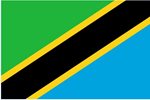John Mershon
 John is a fourth-year medical student at the University of Virginia School of Medicine applying into Urology. Global health has been a strong focus for him ever since his plans to go to Guinea as a Peace Corps volunteer were altered by the Ebola epidemic in West Africa in 2014. He spent time at the NIH studying drug resistance in malaria and completed a research project studying maternal outcomes in Kigali, Rwanda. In 2020, he will spend six weeks in Tanzania assisting with the evaluation and treatment of urologic patients with a focus on vesicovaginal fistulas and other post-partum urologic complications. In his free time, John is an avid outdoorsman and spends time hiking, mountain-biking and trail-running. He also enjoys singing with his medical school a capella group and vegetarian cooking with a focus on Asian cuisine.
John is a fourth-year medical student at the University of Virginia School of Medicine applying into Urology. Global health has been a strong focus for him ever since his plans to go to Guinea as a Peace Corps volunteer were altered by the Ebola epidemic in West Africa in 2014. He spent time at the NIH studying drug resistance in malaria and completed a research project studying maternal outcomes in Kigali, Rwanda. In 2020, he will spend six weeks in Tanzania assisting with the evaluation and treatment of urologic patients with a focus on vesicovaginal fistulas and other post-partum urologic complications. In his free time, John is an avid outdoorsman and spends time hiking, mountain-biking and trail-running. He also enjoys singing with his medical school a capella group and vegetarian cooking with a focus on Asian cuisine.

Clinical elective in Urology at Haydom Lutheran Hospital, Tanzania
1/06/2020 - 2/15/2020
Tanzania
What does the Kean Fellowship mean to you?
The Kean Fellowship represents an opportunity to continue my education in global health and to focus on the needs of developing nations with regard to my chosen specialty. Urologic disease is an under-recognized burden in developing nations, particularly among women who face tremendous social stigma and bearing a large economic cost. Through my time in Tanzania, I hope to improve my understanding of these issues as well as craft effective interventions that will be actionable as a provider currently training in a developed nation with very different resource availability. This will allow me to guide my own efforts to offer direct aid and education to areas of intense need as a practicing urologist in the future. The Kean Fellowship is an embodiment of institutional and financial support for the goals of improving urologic care in developing nations and makes my project much more realistic during medical school when other resources are less available.
What do you anticipate learning?
I plan to better understand the current limitations of urologic care in developing nations as well as improve my understanding of urology in general. Technological dependence in the U.S. has shifted the delivery of urologic care and can limit the comfort of urologists with practicing in resource-limited settings. I hope to be a more well-rounded provider who is comfortable offering care in any setting. I also want to expand my ability to teach and to leverage the advanced resources in the U.S. to provide durable improvements to health systems abroad, rather than focusing exclusively on direct patient care. This can de-incentivize capacity building, which has a detrimental impact on in-country health care delivery. Finally, I hope to expand on the personal growth I experienced during my previous rotation in Rwanda, which taught me about my own strengths and weaknesses as a provider and as a person. I have a more developed sense of my position in the world and the privileges I enjoy given my social and educational background, which have been tremendously useful in shaping my goals during my medical education.
What interests you about tropical medicine and what problems are you interested in solving?
Tropical medicine offers unique challenges and opportunities, particularly for urologic disease. Modern urology depends so heavily on advanced technology that it is sometimes difficult to maintain the flexibility required in a resource-limited setting. Tropical medicine encourages flexibility and ingenuity, but the rewards of achieving good outcomes are often much more substantial. Tropical medicine offers me personal as well as professional growth and the satisfaction of a deep internal drive for justice and a need to use the advantages I have been given for the benefit of others. I am particularly interested in solving the problem of the disproportionate burden of urologic disease on women in developing nations and in improving maternal and pediatric health in this setting. I hope to be able to reduce the stigma faced by these vulnerable patients as well as to educate providers on low-cost, non-surgical management options for patients that can greatly improve quality of life.